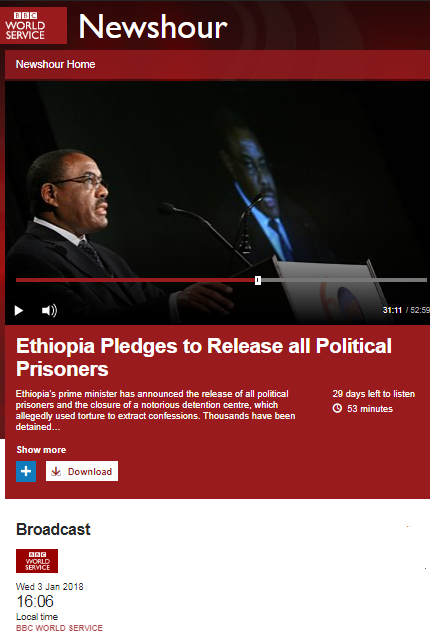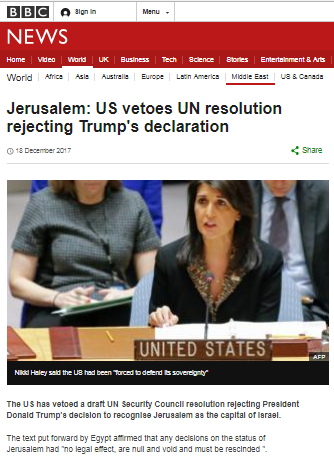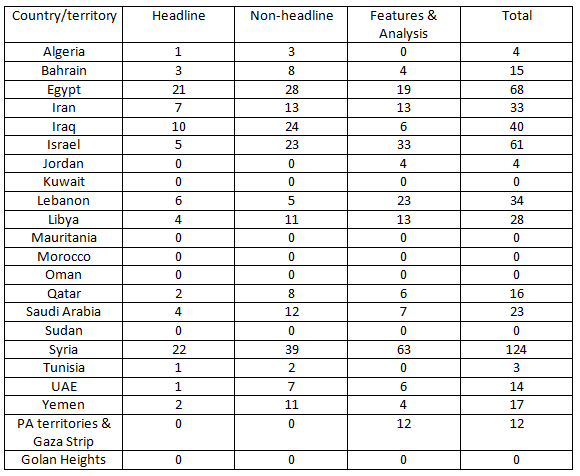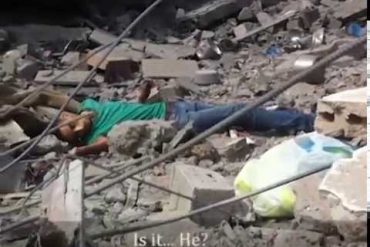Last week we noted an item which appeared in the July 3rd edition of BBC Radio 4’s ‘Today’ programme and one of several additional items of interest from the same broadcast was a conversation between presenter John Humphrys and the BBC’s Middle East editor Jeremy Bowen which is available at around 1:09:12 here for a limited period of time.
Given that Bowen is the ‘gatekeeper’ of the BBC’s Middle East reporting, it is useful to note the nature of the opinions and beliefs he holds which, in turn, shape the BBC ‘world view’ promoted to millions of viewers, listeners and readers around the world.
John Humphrys: “Tensions between Palestinians and Israelis are dangerously high. Earlier in the week the bodies of three Israeli teenagers were found in the West Bank. The Israelis say they were murdered by Hamas. Yesterday a Palestinian teenager was kidnapped and murdered and the Palestinians blame Israel. I’ve been talking to our Middle East editor Jeremy Bowen about the wider implications of this latest outbreak of violence between the two sides.”
Jeremy Bowen: “First of all, I’m talking to you sitting in Baghdad and you look across the region and the region is boiling and in the last few years one of the relatively quieter areas has been the front between Israelis and Palestinians, but I think that while it’s been a bit out of the headlines, all the old issues have been there and I think it’s also not immune to the kinds of anger that you can see elsewhere in the region. So right around the area you see all this trouble and I’m not surprised that things have started to come to a head again between the Israelis and the Palestinians as well.”
If readers can get past the risible notion that Israel has been “out of the headlines” at any time as far as the BBC is concerned, they will note that Bowen’s ‘one size fits all’ description of the Middle East of course erases from audience view the issue of the Sunni-Shia dispute which currently fuels so much of the conflict in the region, but does not have a role in the Palestinian-Israeli conflict.
JH: “The Jerusalem Post is writing this morning about the murder of the teenagers obviously and it says this: ‘it’s another reminder that swathes of Palestinian society continue to be irreconcilably committed to Israel’s destruction’. Is it the case that it’s not just terrorist organisations such as Hamas that are bent on Israel’s destruction, but the Palestinian people generally are irreconcilably opposed to the existence of Israel?”
JB: “No, I don’t think that’s the case. I think the vast majority of Palestinians are absolutely reconciled to the existence of Israel. What they’re not reconciled to is the continuing occupation of land taken in 1967, the growth of settlements. You know you’ve heard all this many times before and it was interesting as well – and telling, I think – to see the mother of the Palestinian teenager who was killed saying Palestinians have no rights and I think that they feel that there’s one law for Israelis and one law for themselves and that they’re never going to be in a better place until they get independence, get their own state and that, I think, is the prevalent view among Palestinians.”
Those who saw the two filmed reports produced by James Reynolds on July 4th – the day after this programme was broadcast – will note the remarkable similarity of messaging and promotion of the inaccurate notion of a ‘two-tier’ justice system. Bowen continues:
“And of course there are some who would like to eliminate the Israeli state – I’ve spoken to them – but the vast majority I think are prepared to live alongside it as an equal.”
So let’s take a look at what the Palestinians themselves said in a poll commissioned by the Washington Institute for Near East Policy which was published a week before Bowen made the above statements.

As we see above, the majority of Palestinians (60.3%) think that their goal over the next five years is “reclaiming all of historic Palestine from the river [Jordan] to the sea [Mediterranean]”. That of course means the elimination of Israel. A further 10.1% favour a “one-state solution” – which also means the elimination of Israel as the Jewish state. Only 27.3% favour making a two-state solution their goal and only 27.2 – 31.6% see a two-state solution as final, with the majority regarding it as a ‘stepping stone’ towards future elimination of Israel.
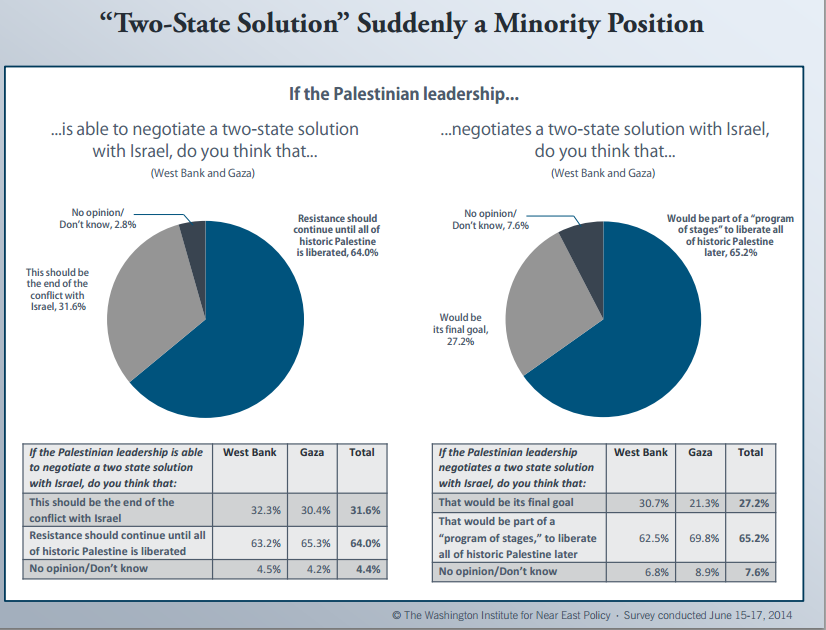
Jeremy Bowen’s received wisdom apparently does not ‘do’ updates.
Humphrys then asks:
“Living alongside people is one thing. Are there any other forces beyond Hamas who would weigh into this now; would take advantage or are likely to take advantage of this situation and spread the terror threat wider? Because it’s not that long ago, is it, that we in this country were terrified of Palestinian terrorism because it was beginning to affect us directly?”
Airbrushing from audience view the PA-instigated second Intifada and the fact that in the last PLC elections “mainstream” Palestinian political parties failed to beat Hamas, Bowen replies:
“Yes, certainly back in the 70s people were very concerned about that but the mainstream Palestinians have been engaged in various kinds of attempts at peace processes for more than twenty years now. Hamas themselves have talked about a long-term truce. While not recognizing Israel’s existence – and also saying it should go – they’ve also talked about a long-term truce. One thing that is interesting is that in recent years the Palestinians have not been swept up in the Jihadist current in the way that other Arabs have. Perhaps that will change – who knows.”
Whether or not Bowen really does not understand the tactical basis of and motivation for the often-touted proposal of a Hudna – or “truce” – is unclear, but he is certainly not going out of his way to inform listeners of the real significance and meaning of that proposal.
Likewise, Bowen’s airbrushing of the rising number and influence of Salafist Jihadist groups is distinctly odd considering that, whilst its reporting on the topic is by no means comprehensive (see here and here for example), other BBC reporters have written about the emergence of such groups both in the PA controlled regions of Judea & Samaria and in the Gaza Strip.
Particularly in light of the template BBC reporting on the kidnapping and murder of the three Israeli teenagers which included across the board eradication of any mention of Palestinian public and official celebration of the deed, it is notable that Bowen elects to end his item as follows:
“I think as well you’ve got to look at the calls for vengeance coming from the other side. Senior Israelis have called rabbis and so on to tone it down because it is heating people up after the huge anger of course following the death of those three teenagers. The head for example of Bnei Akiva, which is the largest religious Zionist youth movement, called for vengeance and that’s been criticized by Israelis. So the fact is that there are hot-heads on both sides and there are people who aren’t reconciled to the other side on both sides and that’s one of the factors that makes it an incendiary and difficult situation. And certainly if you talk to Palestinians, many of them speak about a third Intifada – a third uprising – and I have spoken to Palestinians who believe only in non-violent resistance who’ve said to me it’s only a matter of time before it happens and if it happens, it’ll come because it’ll be sparked by something. Now I don’t know if this’ll be the case on this particular occasion but what we’re seeing I think is a very good barometer – an indication – of the tension that’s there, actually on both sides as well.”
Radio 4 listeners are unlikely to be informed that – despite his later apologies – the head of Bnei Akiva is unlikely to remain in his position as a consequence of his remarks, with an emergency meeting on the issue already scheduled.
Notable too is Bowen’s promotion of the notion that a third Intifada will be “sparked by something”. As readers well know, it has been consistent BBC policy to inaccurately claim that the second Intifada was “sparked” by Ariel Sharon’s visit to Temple Mount in September 2000 and to deny the preplanned nature of that event, despite the ample documentation available.
It is therefore worth noting the manner in which the currently ongoing rioting in Jerusalem, the Triangle area, northern Israel and elsewhere is being portrayed by the BBC as ‘protests’ and ‘demonstrations’ caused by a spontaneous outburst of apparently irresistible anger after the murder of Muhammed Abu Khdeir last week.
That, of course, is far from the entire picture but as we see from this interview with Jeremy Bowen, the framing is already being put in place.

